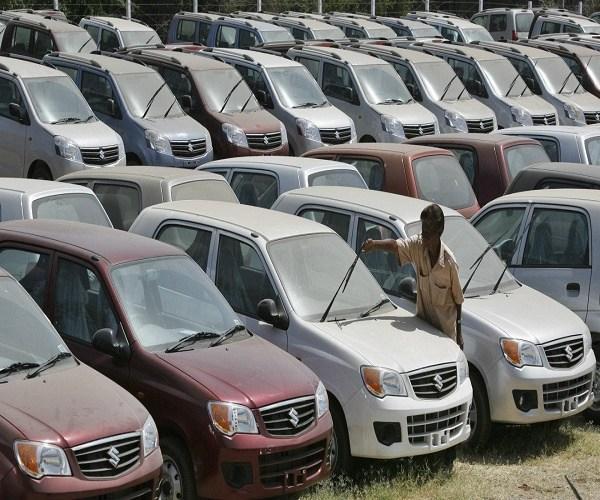The stockyards and dealerships of India’s automobile manufacturers are chock-full with unsold cars and bikes in Hyderabad, making a halt in new sales and progressive marketing efforts.
The piled up inventory currently stands at 500,000 passenger vehicles (PVs) and three million two-wheelers. This has left seven of the country’s top 10 auto majors with little option but to temporarily shut down their factories.
Mahindra Vehicle Manufacturers, an arm of Mahindra & Mahindra, for instance, informed the stock exchanges on June 8 that it would be observing “no production days ranging between 5–13 days” in the April-June quarter as part of “aligning its production with sales requirements.”
Market leader Maruti Suzuki will also shut its plants between June 23 and June 30 to manage the rising number of unsold vehicles. The company had closed its Gurugram and Manesar plants in Haryana for a day last month.
The “auto industry has been moving towards inventory correction,” Vishnu Mathur, the director general of the industry body Society of Indian Automobile Manufacturers told #KhabarLive.
Data released by SIAM showed production exceeding sales in the April-May period, across all categories. May was also the worst month in 18 years for passenger vehicles as sales skid 20.6% year-on-year, the SIAM data showed.
A sector in flux
Auto sales in India have dipped for 11 consecutive months now, as vehicle manufacturers struggle to comply with a string of new safety and environmental policies that have forced them to hike prices or even discontinue some old models.
To make driving safer, India’s ministry of road transport and highways has mandated that all cars manufactured after July 1 should be equipped with features such as airbags, seat-belt reminders, and audio alarm systems that are triggered at high speeds.
New crash test requirements are also being implemented from October 2019.
The industry is also trying to meet the Bharat VI emission standards that will kick in from April 2020. The new norms, which entail an expensive overhaul of diesel engine technology, has forced Maruti Suzuki to discontinue the sales of all diesel cars from next year, while others are expected to follow.
“Given that these high costs will ultimately have to be passed on to the end customer, the sale of diesel vehicles will logically see a decline in the industry,” Mayank Pareek, Tata Motors president for passenger vehicles, had told #KhabarLive last month.
Economy in slow lane
These policy changes add to the woes of the auto industry facing a slowing Indian economy and a gloomy jobs scene.
Last week, India lost its tag as the world’s fastest-growing major economy after GDP growth slowed to a five-year low of 6.8% in financial year 2019. Doubts have also been cast on the reliability of the high growth numbers clocked in past years.
Given the waning confidence in the economy, Indians have been reluctant to spend and big-ticket items such as two- and three-wheelers have seen the worst of the poor retail sentiment. The ongoing crisis in India’s shadow banking sector has also dried up credit for consumers looking at buying automobiles.
Automakers are now pinning their hopes on the new Narendra Modi government’s first budget that will be presented on July 5. “This (declining auto sales) is something which needs serious intervention from the government so that the market starts behaving in a positive manner,” Sugato Sen, deputy director general of SIAM, told #KhabarLive. #KhabarLive







